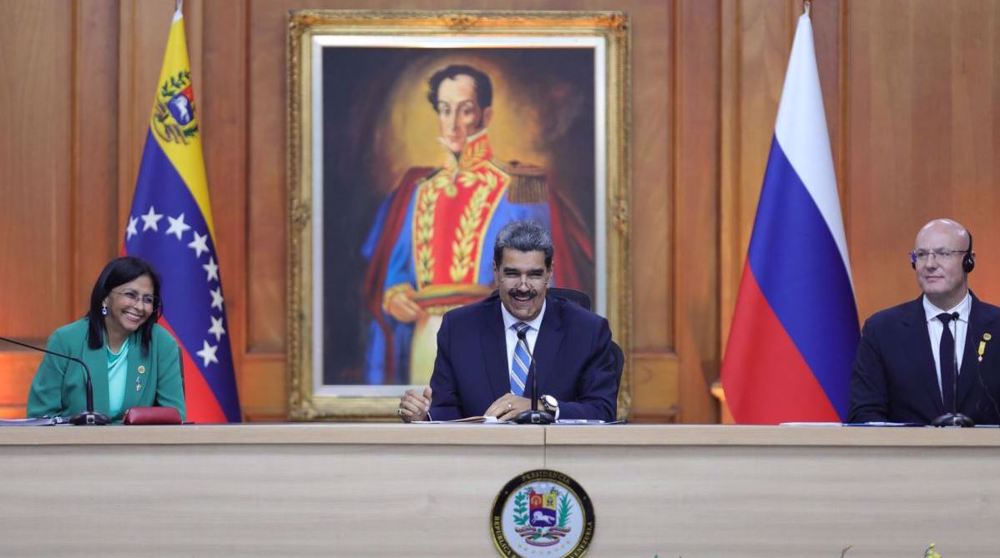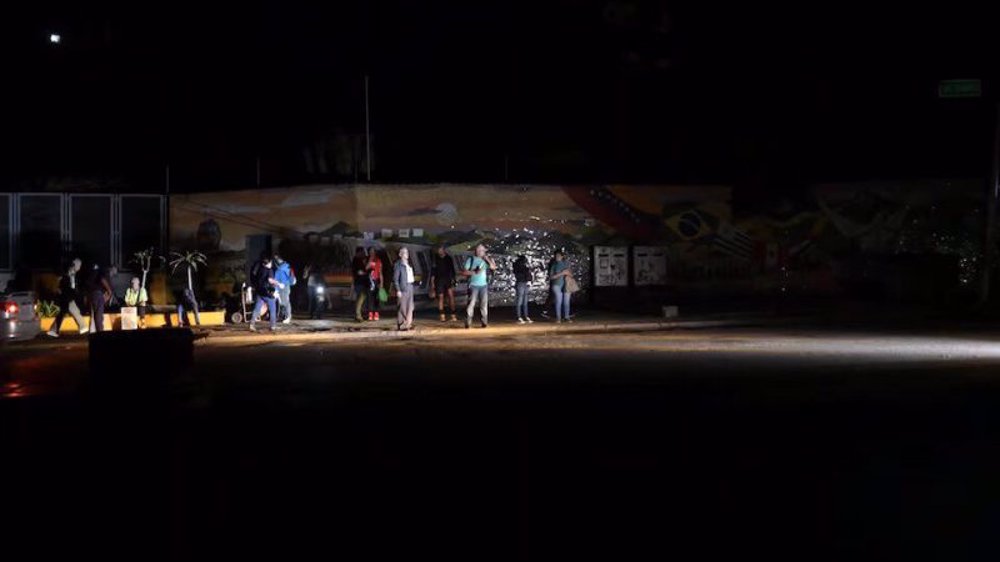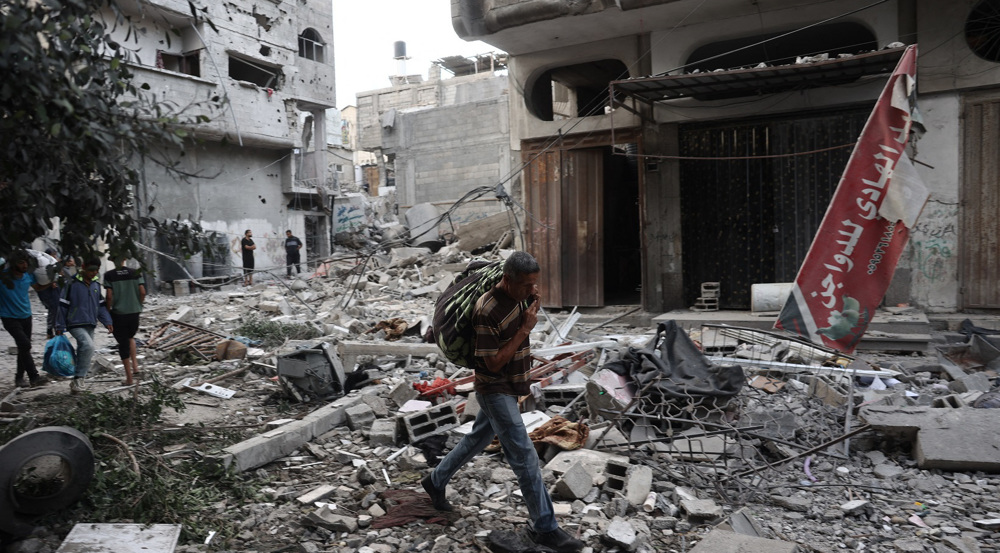Venezuela arrests two top opp. Leaders
Venezuelan has arrested two prominent opposition leaders following a controversial vote to choose an assembly which can dissolve the current opposition-led legislature.
The relatives of Leopoldo Lopez and Antonio Ledezma, who were both already under house arrest, said the forces of the Venezuelan intelligence service, Sebin, took the two opposition leaders early on Tuesday.
The two opposition leaders had called for a boycott of Sunday's vote for Constituent Assembly, tasked with rewriting the constitution, warning that President Nicolas Maduro was the driving force behind the vote.
Lopez's wife Lilian Tintori released home security camera footage which shows four uniformed police forces and three plain clothes officers putting the opposition figure into a Sebin car, with other cars escorting them.
Ledezma’s three children also said on Twitter that Sebin has taken away their father.
Cellphone footage shows Ledezma was being taken away from his home forcibly while still wearing pajamas.
Later on Tuesday, the Venezuelan Supreme Court accused the two opposition leaders of planning to flee the country.
It also said they had violated the terms of their house arrest, which banned them from "political campaigning" and "making statements to the media."
Lopez, 46, was put under house arrest in July after serving three years and five months in prison as part of a 14-year term on charges of instigating violence during anti-Maduro protests in 2014 which left 43 people dead.
Ledezma, 62, was arrested in February 2015 on charges of conspiracy and was put under house arrest three months later for health reasons.
Opposition lawmaker Freddy Guevara denounced the arrests as a measure aimed at "frightening us and demoralizing us."
Later on Tuesday, the EU condemned the arrest of two opposition leaders, describing it as a “step in the wrong direction.”
"We heard the news today and we believe it's clearly a step in the wrong direction. We expect more information from the Venezuelan authorities on their situation which is still unclear,” Catherine Ray, a spokeswoman for EU diplomatic chief Federica Mogherini, told a daily briefing.
While Venezuela’s old allies, Bolivia, Cuba, Nicaragua and Russia, supported the Sunday vote for the formation of the new 545-member body, the US, EU, Argentina, Brazil, Colombia, Mexico, Spain, Canada and Peru denounced the vote, saying the Constituent Assembly can destroy Venezuelan democracy and institutionalize autocracy there.
The US Treasury Department froze Maduro’s US assets and called him a “dictator” for pushing ahead with the election,
Treasury Secretary Steven Mnuchin further said those participating in the assembly could face “future US sanctions for their role in undermining democratic processes and institutions in Venezuela.”
On Monday, Maduro dismissed the new US sanctions, saying Washington’s threats cannot intimidate him, and that he will not “listen to orders from the empire.”

The European Union also criticized Venezuela’s planned formation of the new congress, saying, “A Constituent Assembly, elected under doubtful and often violent circumstances cannot be part of the solution. It has increased division and will further de-legitimize Venezuela’s democratically elected institutions.”
The bloc also censured Venezuela for the “excessive and disproportionate use of force by security forces,” on the election day and called on both sides to refrain from violence.
Last week, the White House imposed sanctions against 13 current and former Venezuelan officials after doing the same to the country’s vice president in February.
The Sunday elections took place amid a wave of clashes and violence, with protesters attacking polling stations and barricading streets.
The opposition, which had already boycotted the vote, rejected the election results as sham and called for further anti-government protests against the new assembly.
The unrest led to the engagement of anti-government protesters and security forces in street battles as voting was underway, leaving at least 10 people dead and bringing the death toll from four months of protest rallies to more than 120.
Maduro has on several occasions touted the planned rewriting of the constitution as necessary for resolving the widening political crisis in the impoverished but oil-rich country, saying that the reforms would help the nation through the current economic crisis.
He blames the crisis in the country on the United States, saying Washington has incited the opposition.
Cultural experts urge UN to shield Lebanon’s heritage against Israeli attacks
Iran's defense chief vows to continue support for Syria, resistance front
Israel sends draft orders to more ultra-Orthodox amid war on Gaza, Lebanon
CAIR condemns ‘Genocide Joe’ Biden’s support for Israeli atrocities in Gaza
Hezbollah’s media relations chief killed in Israeli strike on Beirut, reports say
How CPJ masks the truth about Palestinian journalists killed by Israel in Gaza
Assad: Eradicating terrorism regional, int’l responsibility
‘Fascist occupation army’: Hamas slams Israeli onslaught on Beit Lahiya










 This makes it easy to access the Press TV website
This makes it easy to access the Press TV website